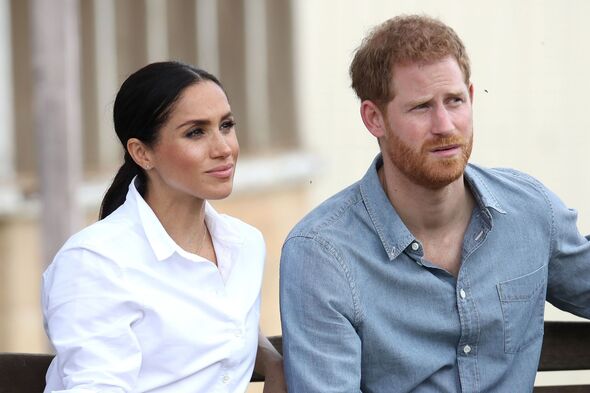Prince Harry faced criticism following his recent appearance where he encouraged companies to prioritize their employees’ well-being.
During his first public appearance of the year with mental health startup BetterUp, the Duke of Sussex emphasized the importance of allowing individuals time for self-reflection and personal growth.
He shared his own experience of burnout and highlighted the significance of inner work.
However, his remarks received mixed reactions, with some questioning his credibility and relevance.
Social media users expressed skepticism towards Prince Harry‘s advice, questioning his understanding of the real-world challenges faced by working individuals.
One Twitter user dismissed his suggestions, stating, “What does he know about having a job or finding a balance between work and personal life?”
Others criticized his privileged background and perceived lack of practical experience in traditional employment settings.
Despite Prince Harry’s genuine intentions, many observers found it challenging to take his guidance seriously, especially in light of his public disputes within the royal family.
Some individuals voiced their reservations about viewing him as a role model, citing concerns over his past actions and decisions.
The prince was labeled as a “lazy bum” by one critic who dismissed his relevance beyond his title and media attention.
The scrutiny extended to Prince Harry’s immigration status in the United States, with an immigration lawyer questioning the legality of his residency.
The lawyer raised issues regarding the prince’s past drug use and speculated about potential violations of immigration laws.
Prince Harry had previously admitted to using drugs and alcohol excessively as a coping mechanism following his mother’s death, leading to further scrutiny over his conduct and legal status.
Meanwhile, controversial figure Piers Morgan publicly supported comedian Joe Rogan amid the ongoing tensions involving Meghan Markle and Prince Harry.
In a column for the New York Post, Morgan praised Rogan’s podcast for its diverse range of discussions and viewpoints.
He defended Rogan’s right to express differing opinions and criticized attempts to undermine his platform.
Morgan suggested redirecting funds from the royal couple’s Spotify deal to support Rogan’s podcast instead.
The clash of opinions and controversies surrounding Prince Harry’s mental health advocacy and the broader media landscape reflects the complex dynamics of public discourse.
While individuals like Prince Harry strive to promote well-being and self-care, they face scrutiny and skepticism from various quarters.
The intersection of personal struggles, public image, and societal expectations underscores the intricate nature of navigating mental health conversations in the public eye.
As the debate continues to unfold, it remains essential to engage in constructive dialogue and critical reflection on the diverse perspectives shaping contemporary discussions.
The juxtaposition of personal narratives, professional responsibilities, and social critiques highlights the multifaceted nature of addressing mental health challenges in today’s interconnected world.
Ultimately, the complexities surrounding Prince Harry’s advocacy efforts underscore the ongoing need for nuanced conversations and inclusive approaches to mental well-being.
Related Stories

